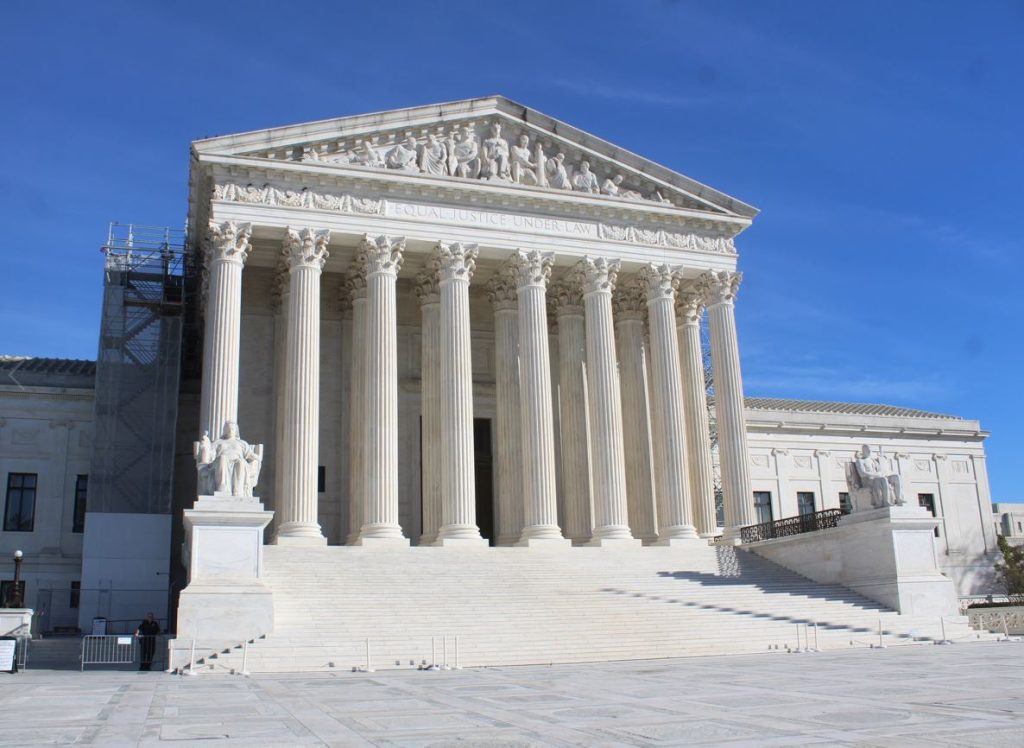Supreme Court Unveils Ethics Code for Justices

WASHINGTON — The U.S. Supreme Court announced Monday that it is adopting a code of conduct for justices in the wake of a series of revelations about undisclosed gifts and other benefits some had received from wealthy benefactors.
In a statement accompanying the new code, the justices said their intent was to “set out succinctly and gather in one place the ethics rules and principles that guide the conduct of the members of the court.”
“For the most part these rules and principles are not new,” the justices said. “The court has long had the equivalent of common law ethics rules, that is, a body of rules derived from a variety of sources, including statutory provisions, the code that applies to other members of the federal judiciary, ethics advisory opinions issued by the Judicial Conference Committee on Codes of Conduct, and historic practice.”
However, they acknowledged the absence of a code “has led in recent years to the misunderstanding that the justices of this court, unlike all other jurists in this country, regard themselves as unrestricted by any ethics rules.”
“To dispel this misunderstanding, we are issuing this code, which largely represents a codification of principles that we have long regarded as governing our conduct,” they said.
The code is divided into five canons:

Canon 1: A justice should uphold the integrity and independence of the judiciary.
Canon 2: A justice should avoid impropriety and the appearance of impropriety in all activities.
Canon 3: A justice should perform the duties of office fairly, impartially and diligently.
Canon 4: A justice may engage in extrajudicial activities that are consistent with the obligations of the judicial office.
Canon 5: A justice should refrain from political activity.
Not evident on first reading is how the code will be enforced or what the repercussions for violations will be.
Debate over whether the justices should be bound by a code of conduct of ethics has gone on for years, but the issue got white hot in April after ProPublica documented Justice Clarence Thomas’ years of undisclosed luxury travel and other perks bankrolled by Texas real estate magnate and conservative donor Harlan Crow.
Other justices, including Samuel Alito Jr., have also faced allegations of failing to disclose their connections to wealthy people with close ties to the court.
Alito, for instance, did not report a 2008 trip on the private jet of Paul Singer, a hedge fund billionaire who later had cases before the court.
But it was Thomas, whose wife, Virginia Thomas, worked to overturn the 2020 election results in the weeks leading up to the Capitol attack, who came under the most withering scrutiny.
In response, he later refiled financial disclosures accounting for any gifts he may have received.
Other justices have also run afoul of what, until now, were the very informal rules justices on the Supreme Court followed.
Justice Neil Gorsuch, for instance, did not disclose that the head of a major law firm had purchased a Colorado vacation property that he co-owned, and The Associated Press reported earlier this year that Justice Sonia Sotomayor’s staff urged colleges to purchase her books when she traveled to their schools.
So loud did the drum beat for more accountability become that the Senate Judiciary Committee invited Chief Justice John Roberts to testify about ethics rules for the Supreme Court.
Roberts declined the invitation, stating that appearances by justices before the committee were “exceedingly rare, as one might expect in light of separation of powers concerns and the importance of preserving judicial independence.”
In the same letter, he also noted that the court took “guidance” from the ethics code for other federal judges.
Trevor Potter, president of Campaign Legal Center, an organization that has long advocated for a code of ethical conduct for the Supreme Court, said he was disappointed in what the justices released.
“At first glance, the ‘ethics rules and principles that guide the conduc … may seem like a step in the right direction, but the reality is that this statement by the Court does not constitute an binding ethics code or rule and does not satisfy basic principles of government ethics under any branch of government at any level,” Potter said.
“The ‘Code’ merely lays out principles that justices ‘should,’ but are not required to abide by. The lack of any true measure or method of enforcing this “code” makes it clear that this is little more than an effort to assuage public outrage without assuming any actual accountability for ethics in our nation’s highest court,” he continued.
Potter noted that every other branch of government has a dedicated body responsible for enforcing its ethics code, “yet the Court does not even attempt to create one for itself here.
“This ‘code’ changes nothing about the existing system of ethics self-policing in the Supreme Court,” Potter said. “In fact, buried at the end of the document, the Court says they may rely on a variety of sources in interpreting the requirements of the ethics code – business as usual.
“This “code” manages to provide a lot of suggestions, but no dedicated entities or clear processes to interpret the code of conduct, investigate violations, and enforce compliance. If this is the best the nine justices of the Supreme Court can do, then Congress must act to ensure actual accountability for ethics,” he said.
Dan can be reached at [email protected] and @DanMcCue
























